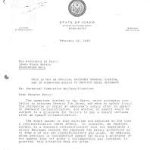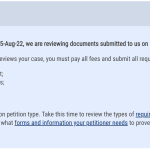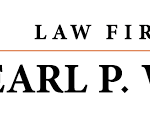Attorneys provide legal assistance for their clients across an array of issues, providing advice, researching legal matters and drafting legal documents.
Many attorneys choose to specialize in specific areas of law. This may involve further coursework or certification in order to develop their niche expertise.
Use a high-quality professional photo to establish visual engagement with site visitors, and highlight any relevant credentials, fellowships, certifications or honors in your bio to demonstrate expertise.
Legal Advice
If an individual finds themselves facing legal trouble, they should seek professional legal advice immediately. This requires conducting a detailed and specific analysis of how the law pertains to them specifically, which differs from general legal information which does not impact on an individual’s rights or responsibilities.
If an individual needs legal assistance on a tight budget, they should search online for free or low-cost resources. Many law schools also provide programs through which students working under attorney supervision provide legal advice at reduced rates.
Lawyers also offer limited legal services that include reviewing or preparing documents, offering advice or representation in court but do not represent their clients in full. This option can be especially beneficial to individuals facing legal matters that must be resolved quickly and for which assistance from lawyers on an immediate or short-term basis may only be necessary.
Legal Research
Legal research involves searching the law, statutes, regulations and court opinions that support an argument or decision made in a legal dispute or decision-making situation. Legal professionals conduct this type of research in preparation for court cases or filing documents with them; as well as to make sure their cited laws remain up-to-date and have not changed over time.
Legal researchers conduct in-depth and complex legal research for their clients’ cases, combing through dense laws and regulations to uncover relevant details for them. Legal researchers must possess an advanced knowledge of law research techniques as a crucial element of being an effective legal representative, paralegal, or law student.
Meeting with Clients
Attorneys communicate with clients in various ways. Interactions could range from gathering information, scheduling an appointment or verifying payment status to meeting in person to discuss cases.
At their initial meeting, attorneys can set client expectations and outline how the case will progress. Furthermore, they should take notes during this discussion in case it changes later.
Attorneys should make it clear who they will work with on a case, including legal secretaries and paralegals, to avoid client disappointment when the result differs from expectations. For instance, divorce cases often have minimal bearing on property division, custody arrangements and maintenance agreements.
Drafting Documents
Drafting legal documents is an integral function for many attorneys, encompassing contracts, agreements, pleadings, motions, briefs and legal opinions. Drafting these legal documents requires an in-depth knowledge of law as well as strong organizational abilities and precise writing abilities – three traits essential for success in legal practice.
Attorneys are experts at creating legal documents that are clear, precise, and compliant with applicable laws and regulations. Furthermore, they can tailor them specifically to each client’s circumstances and objectives.
There may be times when DIY contract drafting may suffice; however, for contracts involving large sums of money or valuable assets as well as complex terms, having an attorney review and draft the document can ensure it’s legal and provides adequate protection to both parties involved.
Trial Preparation
Trial is where prosecutors present their case against defendants to a jury, asking them to determine if any crimes have been committed by them. While many people assume attorneys appear confident before judges and juries at trials, in reality preparation often begins weeks or even months in advance.
Thorough preparation includes finding witnesses willing to testify on behalf of their client’s case, gathering evidence supporting it and even hiring expert witnesses for explaining complex topics to juries. Acknowledging any arguments the opposing side may make early on enables attorneys to anticipate them and respond effectively with counter arguments of their own.
Lawyers need to carefully consider who will attend and whether any discussions covered by privilege (e.g. attorney-client privilege or governmental privilege). Utilizing tools that facilitate collaboration among team members can streamline this process while mitigating security risks.












